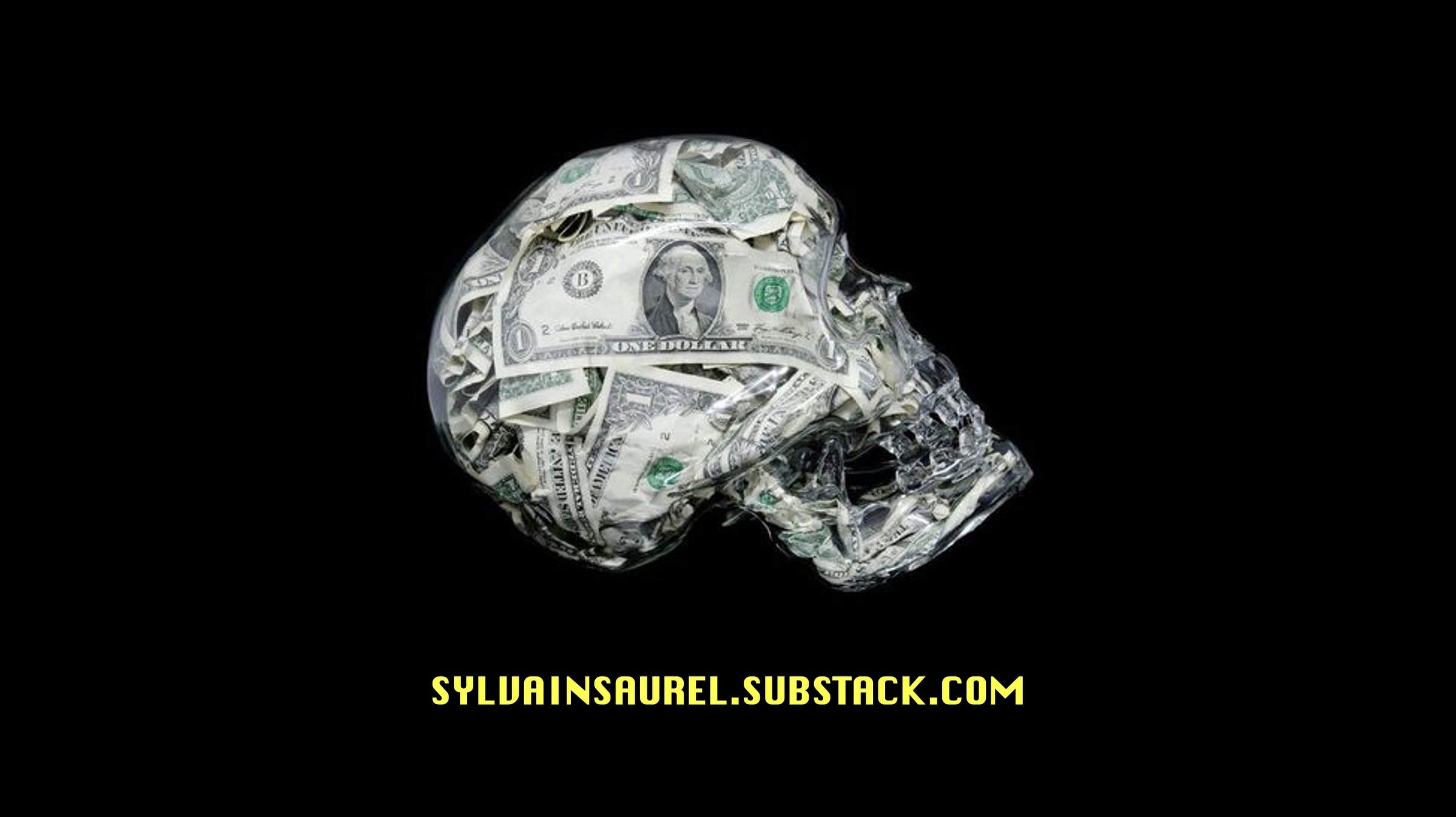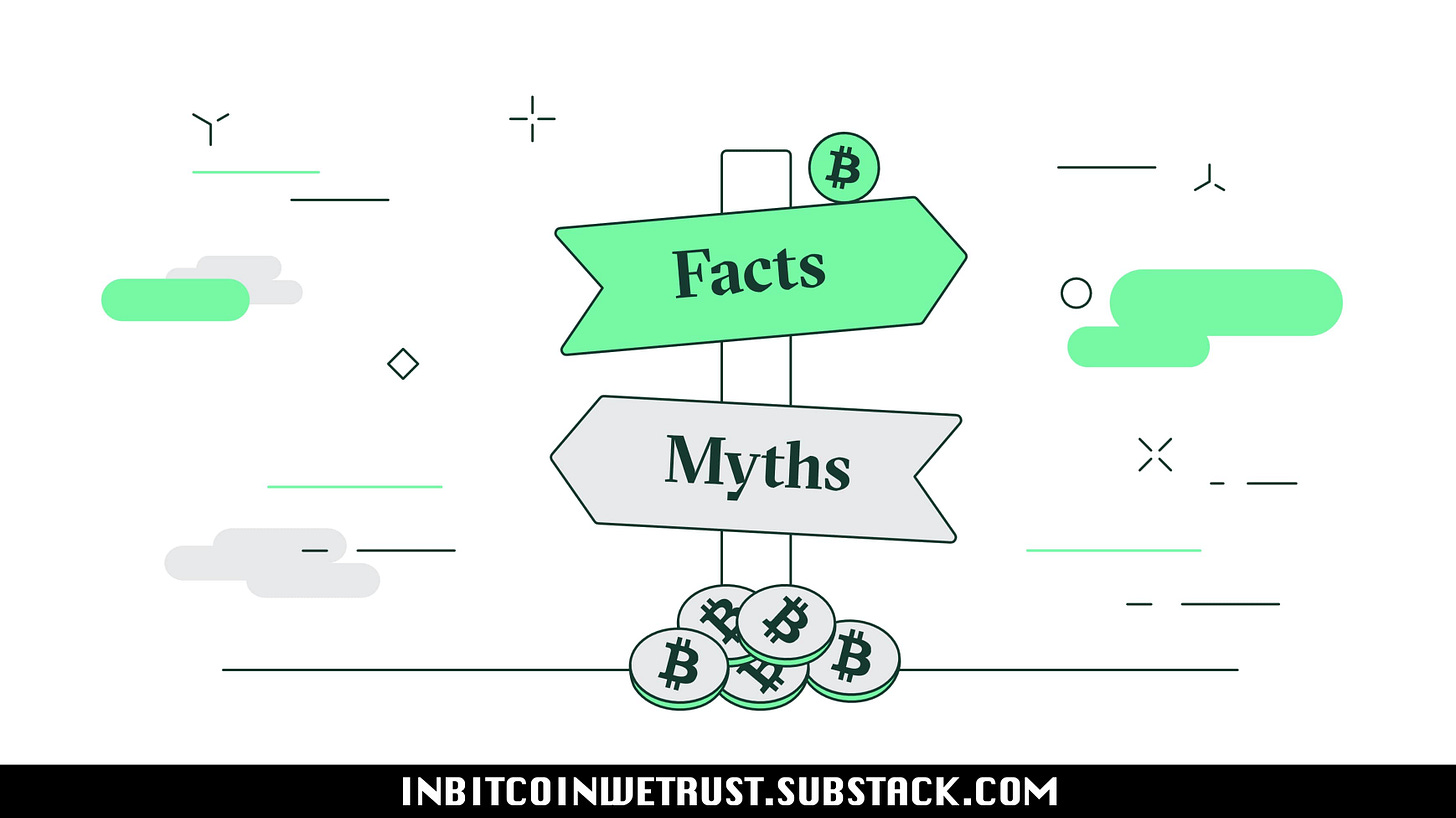Post-Dollar World: Multi-Currency System, Return to the Gold Standard, or Rise of the King Bitcoin?
What kind of international monetary and financial system would be possible without the domination of the King Dollar?
After more than 100 days of Donald Trump's second term in the White House, it's clear that Donald Trump wants to reduce the dollar's dominant role over the world. However, one question remains unanswered: what kind of international monetary and financial system is there without the domination of the King Dollar?
Will we see a shift to a multi-currency system? Is a return to the gold standard on the horizon? Or will we see the coronation of Bitcoin, a neutral, apolitical currency perfectly suited to the digital world of today and tomorrow?
The 5 Major Misconceptions the General Public Still Has About Bitcoin in 2025
Misconception #5: Bitcoin can be easily replaced by another cryptocurrency.
This time, the risk is more than real that it could be different. Heralded for years, the fall of the King Dollar is now a real possibility. Or rather, a real risk: The dollar is in danger of losing its status as the world's reserve currency.
Today, 57% of the world's foreign exchange reserves are denominated in dollars, as are 64% of outstanding debt, 58% of payments, and 54% of trade. But it's well known that the Trump administration (and especially its economic advisor Stephen Miran) believes that this role is penalizing for the United States and its industrial base.
This role as the world's reserve currency generates strong demand for greenbacks, hence its appreciation against other currencies (by over 30% against all currencies since its low point in 2008, and from 0.64 euros in April 2008 to 0.88 euros today). Since the stated aim is to relocate traditional industries (automotive, steel, aluminum, etc.) to the United States, this administration believes that the dollar should cease to be a reserve currency; hence, the idea of forcing other countries to sell it through the threat of very high tariffs.
Furthermore, after Jerome Powell leaves the Fed in May 2026, it is likely that his successor, appointed by Donald Trump, will act to depreciate the dollar. If holding the dollar entails a high exchange rate risk, its dominant role will likely weaken. The question then arises as to how the international monetary and financial system will function in this post-King Dollar world.
A multi-currency system
The first solution would be a multi-currency system. This would see an increase in the share of the euro (20% today), the Chinese RMB (3% today), the yen (6%), the pound sterling (5%) and the Canadian dollar (2%) in official foreign exchange reserves, international trade invoicing, foreign exchange transactions and international bond issues. This would imply higher transaction, conversion, and hedging costs. Naturally, the organization of the international monetary and financial system tends to favor a single currency to avoid these costs, as demonstrated by the replacement of sterling by the dollar between the two world wars.
But the euro alone cannot replace the dollar, due to the multiplication of euro-denominated public debts, with varying qualities and ratings, and the small size of pan-European bond issues.
Return to the gold standard
The second solution is the return of the gold standard. Quantitatively and technically, this return is feasible. The world's foreign exchange reserves stand at $12.3 trillion, with those in dollars at $7 trillion. By way of comparison, the value of the world's gold stock, at the price reached at the beginning of April 2025, is $21,060 billion. Converting a portion of foreign currency reserves into gold would also drive the price of the yellow metal even higher ($1,200 per ounce at the end of 2018, $3,300 at the beginning of 2025).
For years now, China and Russia have been preparing for this scenario of a return to the gold standard by accumulating ever more gold to carry more weight in a world where those with the most gold will carry more weight.
The coronation of Bitcoin
The third solution is adapted to the world of today, but above all of tomorrow. It's different because it's new. It consists of replacing the various currencies in all their roles with Bitcoin. Bitcoin is a P2P hard money limited to 21 million units, come what may. Bitcoin's current outstanding value is $2,044 billion at the current exchange rate. Admittedly, this is a little more than 10 times the world's gold stock, but Bitcoin adoption will continue to accelerate in the future to fill some of this gap.
The transition to Bitcoin as the world's reserve currency would mean a considerable rise in its price. For some, this would be unjustified enrichment. For others, it would be pure logic, as Bitcoin would make it possible to overhaul the international monetary and financial system by guaranteeing true neutrality, which is no longer possible with the US dollar due to its weaponization by the Biden administration in particular.
Final Thoughts
It is increasingly likely that America's policies under the Trump administration will lead to a drastic reduction in the dollar's role as the world's reserve currency. Three scenarios are therefore on the table for the future. For many, the most likely scenario is the transition to a world with several reserve currencies (dollar, euro, Chinese RMB, British pound, Canadian dollar, yen, etc.). Proponents of this scenario believe that a return to gold or a switch to Bitcoin would generate extreme price volatility. In my view, this underestimates the unique characteristics of Bitcoin, which could well end up convincing countries that no longer wish to be under the yoke of the world's most powerful nations.
What If This Time It Really Is Different? Is King Dollar in Danger of Losing Its Crown?
The major indices climbed back above their pre-tariff announcement levels on Wall Street. However, the dollar barely rebounded. The world's leading currency will lose an average of 7% by 2025, almost half of which before the start of the trade war. The dollar is losing 9% against the euro, Swiss franc, and yen, and 6% against sterling.
Bitcoin Isn’t Perfect, but It’s Our Best Alternative to the Creature From Jekyll Island.
A voracious creature that has been discreetly and insidiously devouring our purchasing power for over 110 years.





